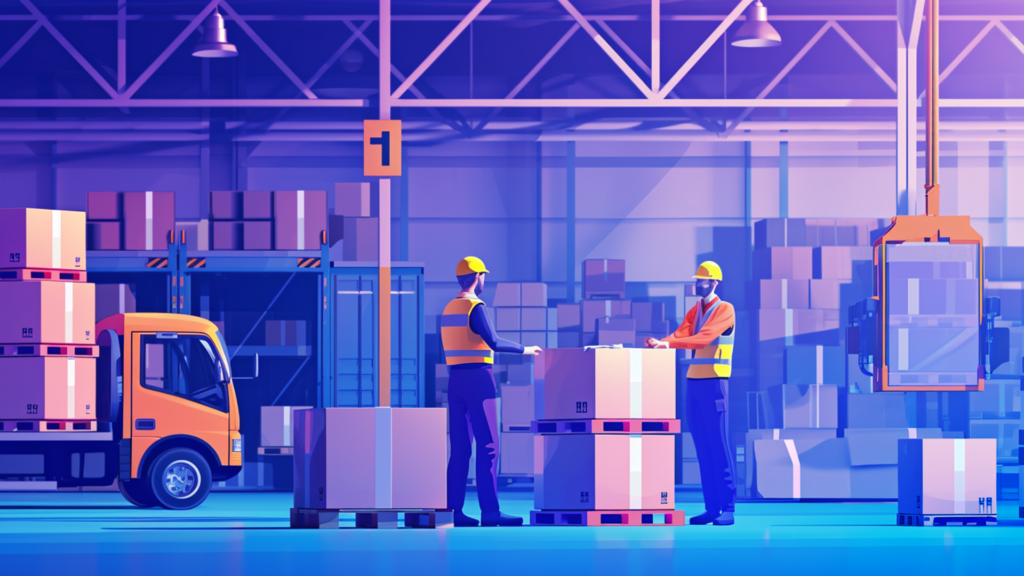The Importance of Real-Time Quality Control in Your Supply Chain
As a supply chain professional, you know how critical it is to ensure product quality throughout the distribution chain. Quality control is essential for maintaining customer satisfaction, brand image reputation,...
On January 29, 2024

As a supply chain professional, you know how critical it is to ensure product quality throughout the distribution chain. Quality control is essential for maintaining customer satisfaction, brand image reputation, and profitability. However, traditional quality control methods such as post-production inspections, batch reviews, and random sampling are not sufficient in ensuring product quality anymore.
In today’s fast-paced and highly regulated industry, real-time quality control is the key to guaranteeing product quality from sourcing to delivery. Let’s discuss the importance of real-time quality control in your supply chain and how it can help you mitigate risks, minimize costs, and enhance your operation’s efficiency.
Achieving Operational Efficiency
In may seem obvious, but real-time quality control helps identify potential issues as soon as they arise, allowing for quick responses, in real-time. A defect identified in real-time can be directly addressed, reducing product waste and return rates. This preventative approach allows for efficient management of the entire supply chain, avoiding costly delays and the potential for product recalls or damaged reputation.
Enhancing Supply Chain Visibility
Integrating real-time quality control into your supply chain means capturing and sharing data across all areas. This approach enables the identification of trends, the recognition of hazards, and risk mitigation. This transparency allows operations managers to spot areas prone to potential problems and improve accountability for suppliers and production facilities.
Mitigating Risks
Real-time quality control allows supply chain managers to spot issues before they become problems. For example, monitoring temperature or humidity levels in real-time during a logistics operation can help eliminate the risk of damage to sensitive products such as food and pharmaceuticals. With the help of real-time quality control, supply chain managers can take immediate action to rectify the issue, significantly reducing the risk of product spoilage or loss.
Meeting the Demands of Consumer Expectations
Real-time quality control helps companies align product quality with consumer expectation. Good customer satisfaction entails providing consistency in the product. With the help of real-time quality monitoring, companies can track trends in customer feedback to quickly address any issues in the product. This approach can help enhance the brand image and help companies increase their competitive edge.
Cost Savings
A proactive approach toward quality control ensures that the supply chain runs smoother with little or no delays. This not only saves manufacturers money but can also save consumers money by ensuring products retain their quality and do not go to waste. Additionally, a reduction in defects and the number of returns helps manufacturers reduce costs in replacing flawed goods, resulting in an overall lower total cost of ownership.
Conclusion
Real-time quality control in your supply chain is crucial to ensuring product quality, mitigating risks, and achieving operational efficiency. By integrating it into your quality management system, you can take proactive steps to identify and address issues immediately, leading to cost savings and an increase in customer satisfaction.
Supply chain managers, warehouse managers, and food and beverage company owners should explore the benefits of real-time quality control and look to invest in the tools and resources to implement this approach into their operations for a more efficient, successful supply chain.
If you’re ready to take the next step towards benefitting from real-time quality control, ask a member of our sales team about Rebus Global Inventory Management. Global Inventory Management not only gives you real-time visibility and control of your inventory, it’s part of the Rebus Extended Warehouse Platform, so it connects seamlessly with your WMS, LMS, and the rest of your supply chain tech stack.









